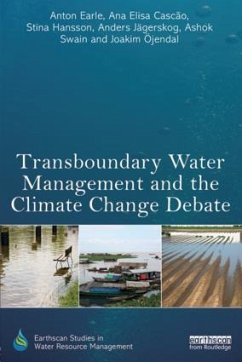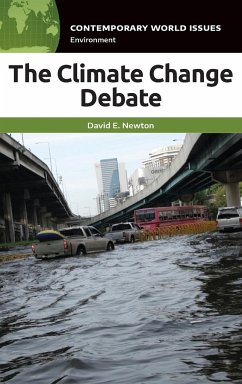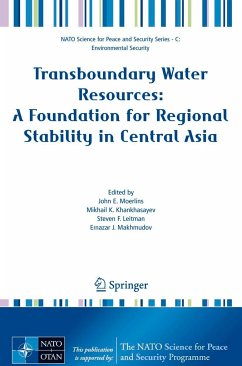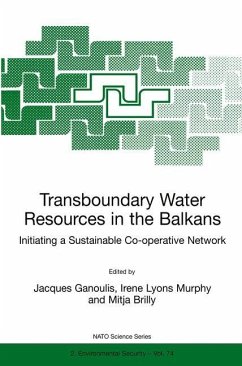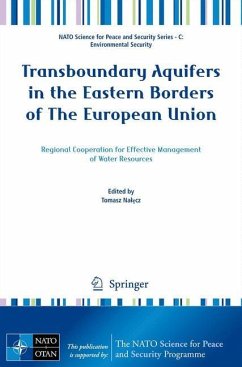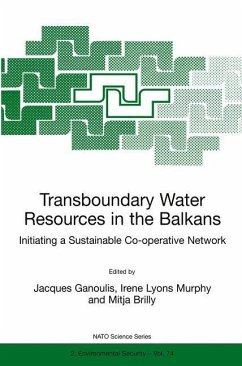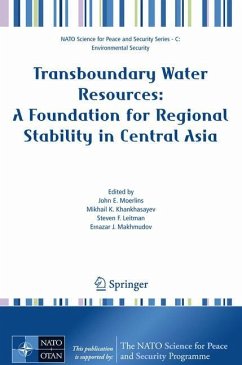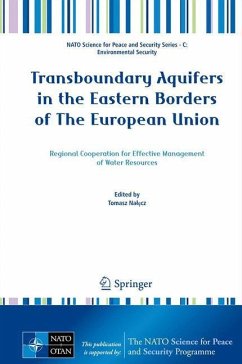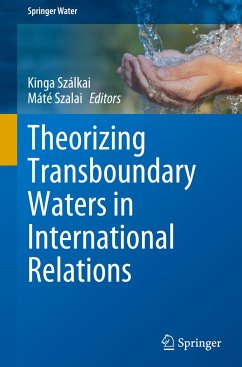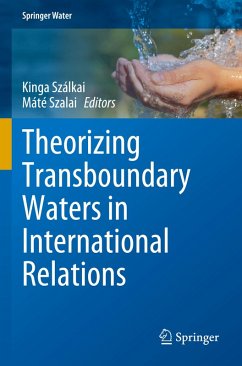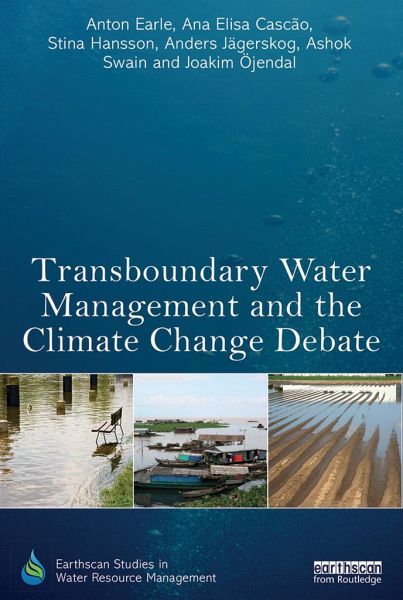
Transboundary Water Management and the Climate Change Debate
Versandkostenfrei!
Versandfertig in 1-2 Wochen
185,99 €
inkl. MwSt.
Weitere Ausgaben:

PAYBACK Punkte
93 °P sammeln!
Climate change has an impact on the ability of transboundary water management institutions to deliver on their respective mandates. The starting point for this book is that actors within transboundary water management institutions develop responses to the climate change debate, as distinct from the physical phenomenon of climate change. Actors respond to this debate broadly in three distinct ways - adapt, resist (as in avoiding the issue) and subvert (as in using the debate to fulfil their own agenda). The book charts approaches which have been taken over the past two decades to promote more effective water management institutions, covering issues of conflict, cooperation, power and law. A new framework for a better understanding of the interaction between transboundary water management institutional resilience and global change is developed through analysis of the way these institutions respond to the climate change debate. This framework is applied to five river case studies from Africa, Asia and the Middle East (Ganges-Brahmaputra, Jordan, Mekong, Nile, Orange-Senqu) from which learning conclusions and policy recommendations are developed.
Transboundary Water Management institutions must be able to adapt and develop effective response mechanisms to the climate change debate, as distinct from the physical phenomenon of climate change. This book presents a framework for increased understanding and resilience in these institutions based on analysis of their responses. Conclusions and recommendations are drawn through six case studies from around the world.




